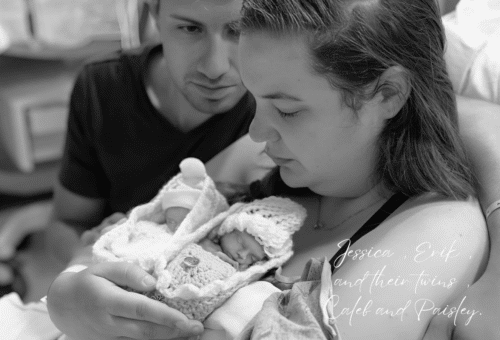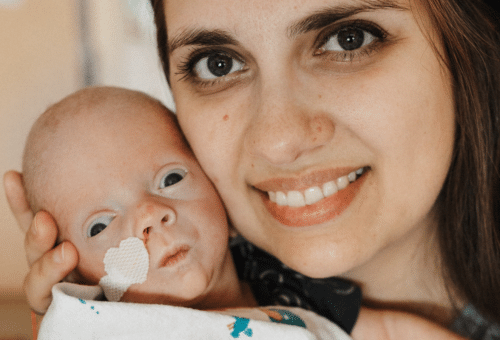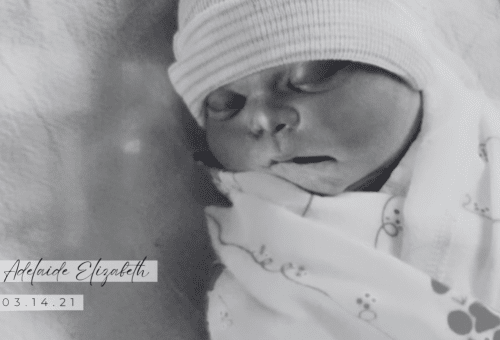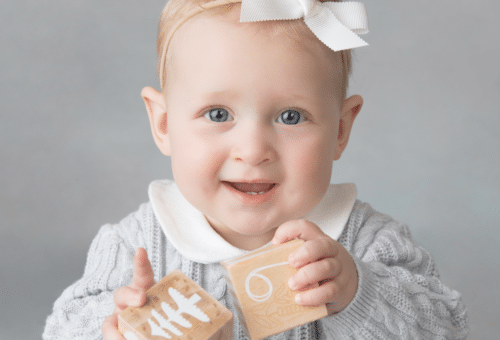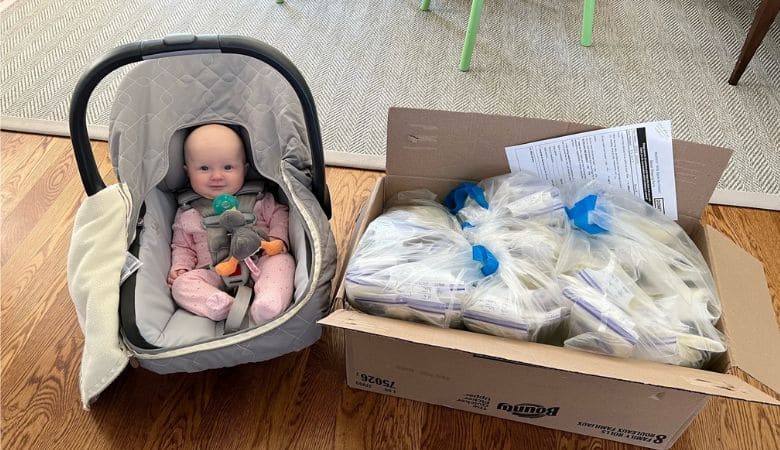
Mary shares how she persevered through the challenges of her first pregnancies and discovered milk donation with her fourth.
Thanks for agreeing to share your story, Mary. Tell us a little about your background and family.
As one of four children growing up in sunny Florida, I always loved being around babies and babysitting. Before I had children, I worked my way up to Vice President of Operations at an investment bank in Manhattan. It was a dream job at a dream company in a dream city. My husband’s job opportunity led us to Boston, at which point we decided to start our family. Many years later in the Boston suburbs I spend my days corralling three little ones and managing our home!
What would you like to share about your pregnancies and early breastfeeding experiences?
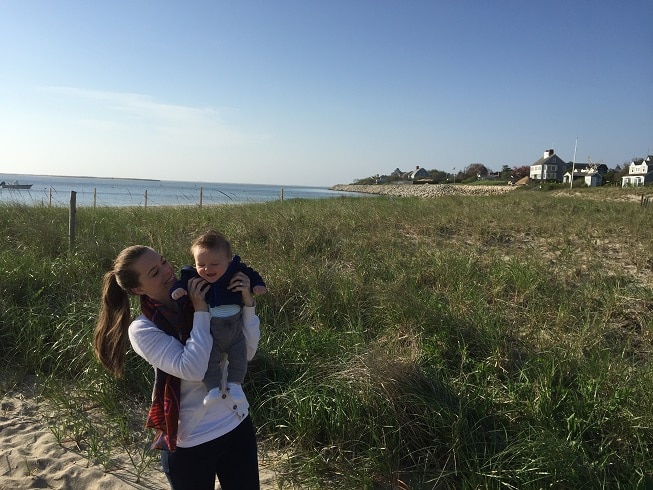
After a miscarriage at 11 weeks for pregnancy number one (talk about a bummer), we quickly became pregnant again and had an uneventful and healthy pregnancy. I attended the standard childbirth and newborn care classes as well as a breastfeeding class. I was as prepared as I could be, but as many new parents come to learn, we really are clueless going into this thing the first time. Our baby was born after 20 long, and occasionally scary, hours. The epidural was too strong, so pushing took forever and interventions were required. Recovery was a struggle. Still, nothing would compare to the pain of breastfeeding—latch issues, excruciating pain, open wounds, urgent calls to lactation consultants for emergency home visits, MRSA infections and mastitis, abscesses, pumping inexperience, formula supplementation, you name it.
That’s a lot to overcome for a new mom. Did you have help?
An immense thank you to Robin Snyder-Drummond, BA, IBCLC for helping us during our darkest hours. I am also forever grateful for the physicians and midwives at Massachusetts General Hospital (MGH) Vincent Obstetrics and the numerous same-day visits to deal with our infections and other issues. I wound up exclusively pumping from weeks two to eight to recover and heal. Due to the severity of the infection, I lost milk production on one side and had to supplement with formula until the supply returned. Somehow baby and I pushed through it all and he nursed till he turned two years old and through the entirety of my next pregnancy.
How did things go with your next pregnancy?
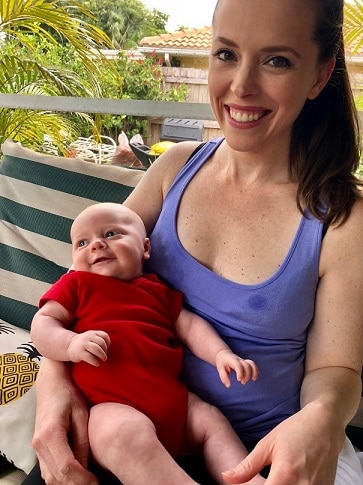
After some time, pregnancy number three was underway. The weeks flew by while chasing a toddler. I had a wonderful labor and delivery experience with no drugs and barely an IV as he arrived so fast! Recovery was a breeze. I had a much better breastfeeding experience after the trauma of the first. I prepared by visiting Dr. Lauren Hanley, formerly of the MGH Vincent Obstetrics practice, who is also a lactation consultant. At this point I understood my personal lactation situation (oversupply, forceful flow, prone to clogs and mastitis) and acquired new tools such as a Haakaa silicone pump. I also hired my dear friend and night nanny Poema to help me rest and remind me about tips and tricks for newborn care. I utilized a great app to track feedings, diaper changes, sleep, etc. I only suffered from mastitis once, when we introduced solids at six months.
After one year of pumping excess supply daily with an electric pump (I have a love/hate relationship with these machines), I found myself sadly throwing away some extra frozen milk. I nursed baby number two till he was two years and eight months and through the majority of my next pregnancy.
Tell us about that pregnancy.
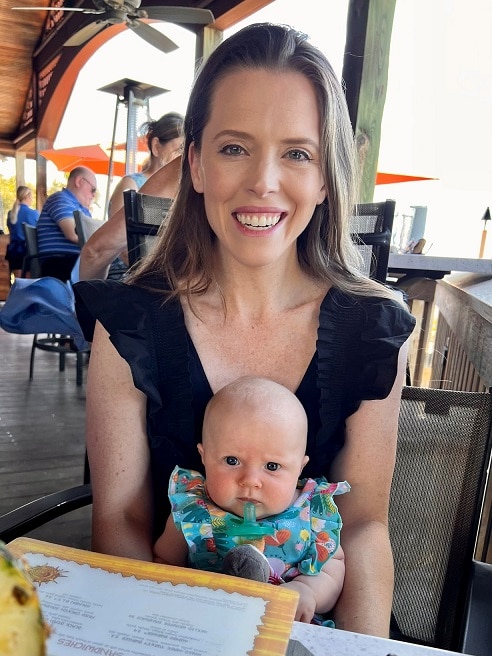
After pandemic delays and a move to the suburbs, pregnancy number four was in motion. I felt like an old pro at this point. It was a tiring but smooth pregnancy and another drug-free delivery. I’m getting good at this! Breastfeeding was great from the start with baby girl keeping up with the fast flow and large quantity of milk as best as she could. Poema worked her night nanny magic to tweak baby’s positioning for a more comfortable experience for all. An activity tracking app helped me to remember which side to start nursing on, etc. I also relied on Haakaa pumps to collect excess milk on the alternate side at each feeding. All of a sudden, my freezer was full of extra milk!
How did you find out about milk donation?
Baby was growing well and didn’t need it all so I inquired about milk donation with both the baby’s pediatrician and my OB. Almost six months in and I’m still stashing three to four ounces per day and will soon have donated a total of 1,000 ounces. Screening was simple, straightforward, and reasonable. Making donations was very easy, both shipping from afar and donating locally.
What does milk donation mean to you?
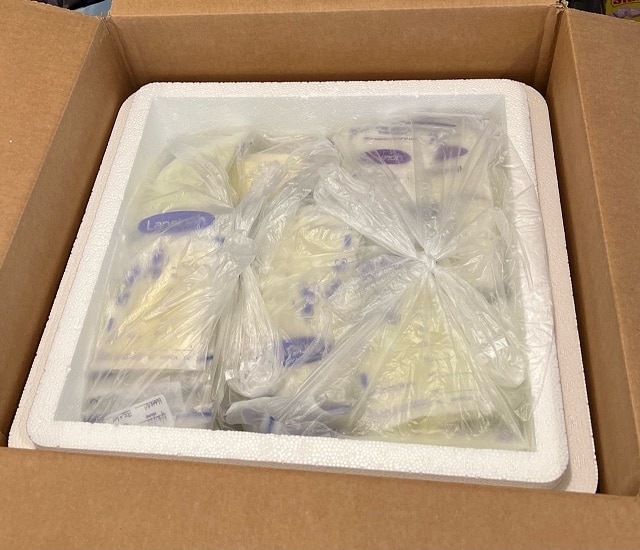
After a challenging breastfeeding experience with my first child, I fully recognize the importance of every drop of milk. When I was not providing enough, as I suffered with a MRSA infection that led to the loss of milk production on one side, supplementing with formula was my only known option. I had no idea about donor milk at the time. To think five years later I would have a freezer overflowing with milk is just amazing. Breastfeeding can be a rollercoaster and I’m so happy I persevered. I am beyond grateful that my body was able to provide precious food not only to my children but also now to the most fragile babies.
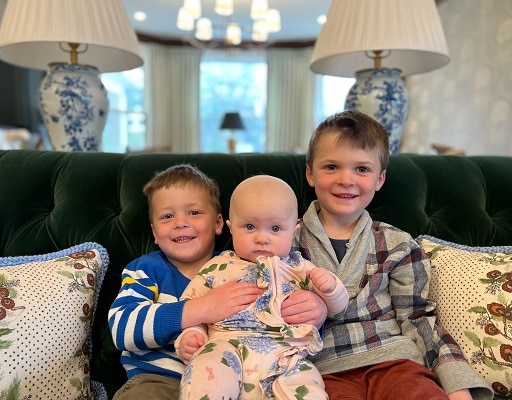
Screening to become a breast milk donor is an easy four-step process. Once accepted for donation, milk can be shipped for free door-to-door or through one of our donor milk depots throughout the Northeast.
